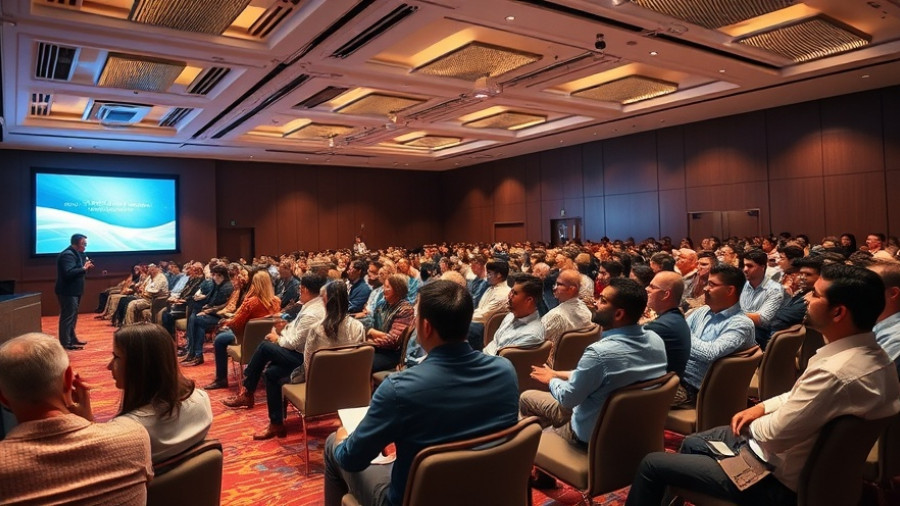
Transforming Hospitality: Rishi Jain's AI Training Workshop
In the fast-paced world of hospitality, successful operators such as Juniper Hotels and Hyatt recognize that staying ahead of the curve involves not just good service but smart integration of technology. Acclaimed AI corporate trainer Rishi Jain recently spearheaded a workshop focused on how artificial intelligence can address critical challenges within the sector, highlighting a unique blend of technical skill-building and real-world applications.
The Challenges of Hospitality Today
Rishi opened his session by pinpointing the pressing issues troubling hotel management, such as high staff turnover, rising operational costs, and the chaotic juggling act of aligning various stakeholders’ interests. Many hotel teams find themselves overwhelmed by repetitive tasks, from tracking project statuses to managing financial compliance. Instead of a vague promise that “AI will solve everything,” Rishi emphasized a practical framework for using AI to tackle these specific challenges.
Skills and Use-Cases: The Two-Part Strategy
Structured into two primary components, Rishi's training emphasized both skill development and contextual application. The first part focused on enhancing skill sets through prompt engineering techniques, using a framework called CRAFT — Context, Refine, Audience, Feedback, and Track. This method enables participants to engage in meaningful interactions with AI, steering discussions towards clarity and actionable insights.
In the second part, attendees explored hospitality-specific use cases where AI can be immediately applicable. For instance, transcribing meeting discussions to streamline communication or employing AI tools to optimize financial tracking and reporting were highlighted as significant time-savers.
Real-World Applications That Reshape Hotel Operations
The training went beyond theory by focusing on practical, actionable insights. Rishi showcased how AI could automate mundane tasks like minute-taking during meetings, thus allowing team members to focus on strategic roles that enhance guest experiences. When team members are freed from such grunt work, they can actively engage in higher-level tasks that drive innovation and personalized service for guests.
Emphasizing AI's Role in Customer Experience
Networking guests and hospitality services have also evolved, as described in the recent findings by industry leaders like EY. AI is not about replacing humans but rather augmenting their capabilities. With the ability to analyze vast datasets, AI fosters personalized guest interactions that build loyalty and boost satisfaction. This goes hand-in-hand with Rishi’s emphasis on using AI to interpret customer feedback, paving the way for continuous service improvement.
Future Predictions: A New Skill Set for Hotel Employees
As AI continues to permeate the hospitality sector, a shift in skill sets among hotel employees is essential. According to studies, including insights from experts like Are Morch, staff will need to enhance their data literacy and emotional intelligence to leverage these technologies effectively. Training programs must prepare employees to work alongside AI systems, ensuring their roles evolve to meet emerging challenges.
Moreover, maintaining the human touch in customer service remains paramount. The emotional intelligence of staff will complement AI’s efficiency, resulting in enriched customer interactions that technology alone cannot replicate.
Building Trust Through Transparency
Implementing AI solutions also comes with the responsibility of ensuring ethical standards and data protection. As highlighted in comprehensive reports, hotels must prioritize transparency in AI use to build trust among guests. This trust will be foundational as hotels embrace AI-driven innovations, helping to foster loyalty while enhancing guest experiences.
Conclusion: Embracing the Future of Hospitality
Rishi Jain's AI workshop demonstrated not just the urgency of integrating AI into hotel operations but also the potential it has to reshape the hospitality landscape fundamentally. Hotels that adopt these technologies can transform their service offerings and operational efficiencies, carving out a unique position in a competitive market. As the industry evolves, embracing both progressive technologies and essential human skills will be key to navigating the new landscape of hospitality.
For hotel operations managers and industry professionals, understanding and implementing these strategies could prove essential for future success. Curious about how these AI insights can reshape your business model? Dive deeper into the world of AI-powered hospitality and start planning for tomorrow.
 Add Row
Add Row  Add
Add 




Write A Comment